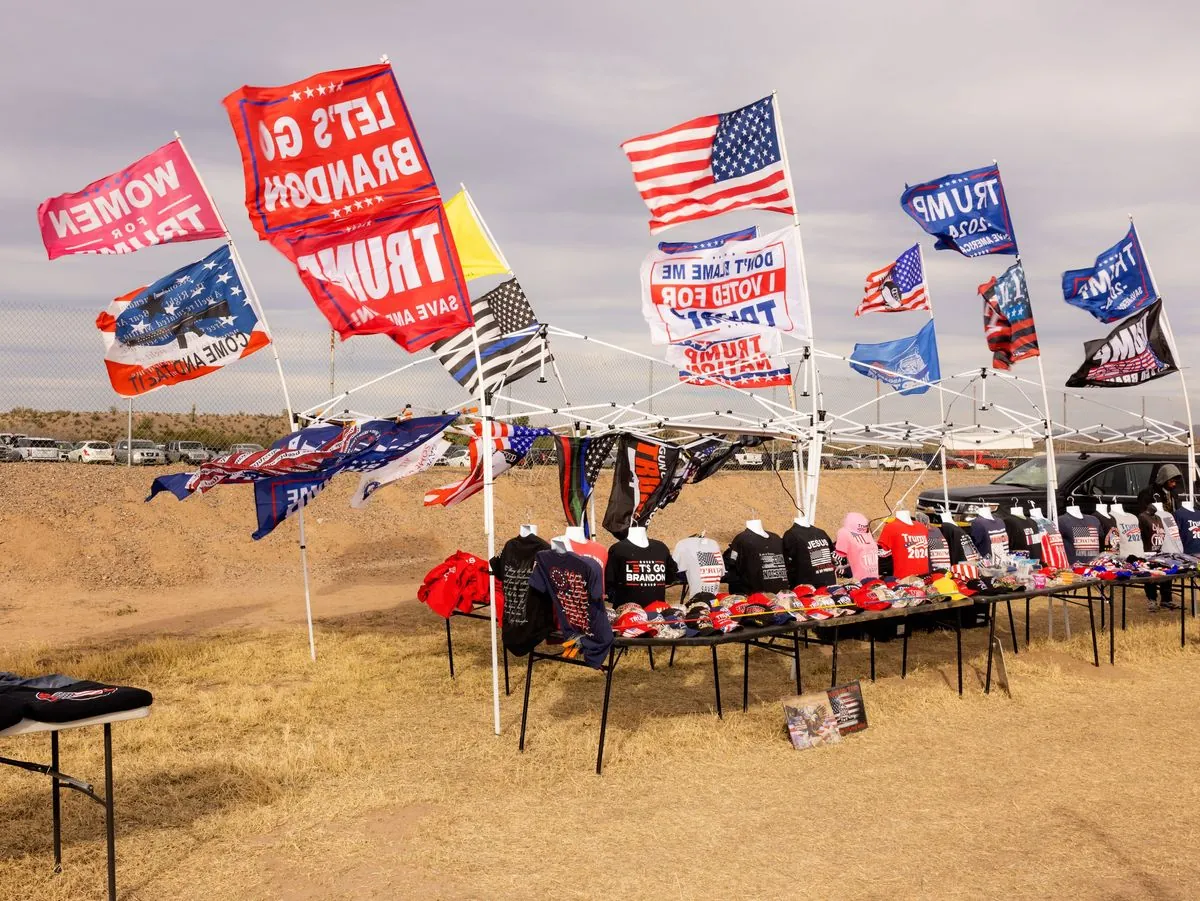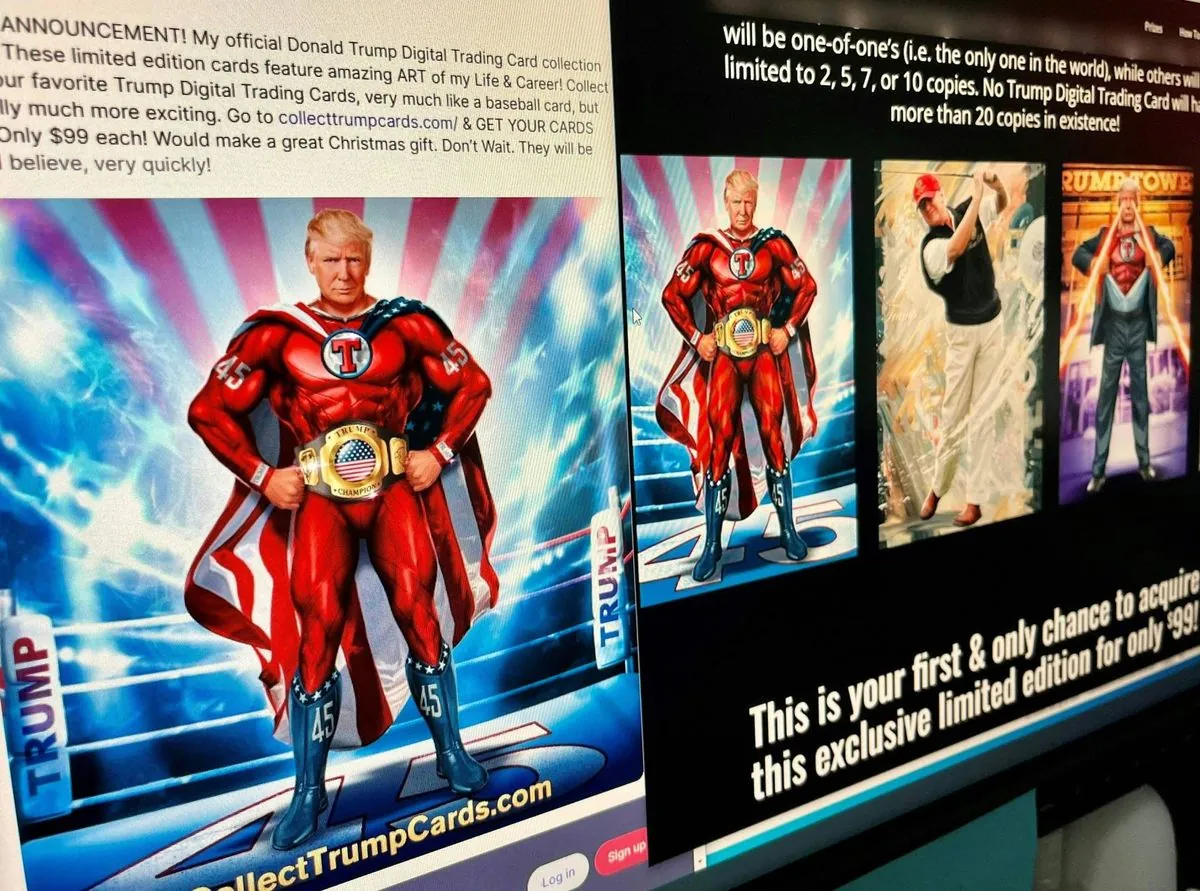Trump's Merchandise Empire: Balancing Business and Politics
Former President Trump's extensive merchandise line, from NFTs to luxury items, raises questions about the intersection of his business interests and political aspirations. The strategy yields profits but potentially impacts campaign funding.

Donald Trump's political rallies have become known for their impromptu marketplaces of Trump-themed merchandise. This phenomenon reflects the former president's dual roles as a businessman and political figure, a balance that has been characteristic of his public life since his initial presidential campaign in 2016.
On August 27, 2024, Trump announced his fourth collection of Non-Fungible Tokens (NFTs), digital assets that gained popularity in 2021. These NFTs offer more than just digital images; they provide access to Trump himself. For $24,750, the first 25 buyers of 250 NFTs receive a package including VIP dinners and cocktail receptions with Trump, along with signed merchandise.

The NFT offerings extend to commemorative items, such as a card featuring a piece of Trump's suit from his debate with President Biden earlier in 2024. This item requires a purchase of 15 trading cards, totaling approximately $1,500.
Trump's merchandise empire extends beyond digital assets. His brand now encompasses a range of products, including:
- Sneakers priced from $199 to $499
- Cologne titled "Victory" for $119
- A Trump-branded Bible for $60
- Books like "Save America" for $99 (or $499 signed)
- Trump wine from the Trump Winery in Charlottesville, Virginia
These products are marketed through various entities, such as CIC Digital LLC and CIC Ventures LLC, subsidiaries of The Donald J. Trump Revocable Trust. This trust was established when Trump assumed the presidency in 2017 to theoretically separate his business interests from his political role.
The merchandise line also includes more traditional political items like "Make America Great Again" hats, a slogan first popularized by Ronald Reagan in 1980. However, it's unclear if sales of these items contribute to Trump's campaign funds.
For affluent supporters, Trump's businesses offer high-end options. Memberships at Trump properties, such as Mar-a-Lago in Palm Beach, Florida, provide regular access to Trump. The initiation fee for Mar-a-Lago is currently $700,000, with an expected increase to $1 million in October 2024.
The profitability of these ventures is evident. Mar-a-Lago's profits have reportedly quadrupled since Trump left office in 2021. Even seemingly minor products, like the Trump-branded Bible, have generated significant income, with Trump earning $300,000 from its sales.
This extensive merchandising effort occurs against the backdrop of Trump's ongoing political activities. His campaign has reported being outpaced in fundraising by Vice President Kamala Harris, the first female to hold this office.
The situation highlights the ongoing tension between Trump's business acumen and his political aspirations. While his merchandise empire demonstrates his ability to monetize his brand, it raises questions about the allocation of resources and supporter contributions between his personal businesses and his political campaign.
As the 2024 election approaches, the balance between Trump's roles as a businessman and a political figure remains a subject of scrutiny and debate.
"I don't see it as a contradiction at all."
This statement encapsulates Trump's perspective on the intertwining of his business and political interests, a stance that has defined his public career since his entry into politics in 2015.


































